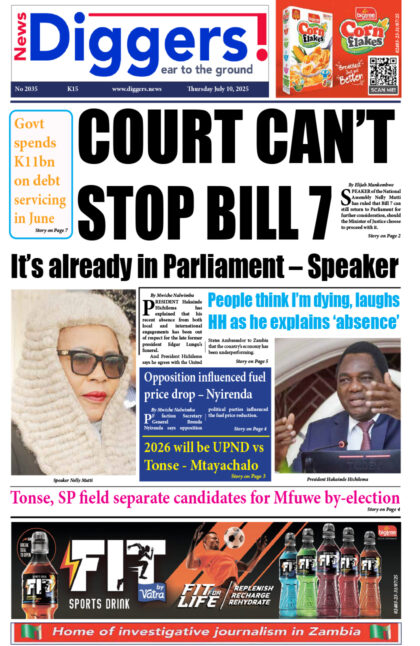ATTORNEY General Mulilo Kabesha says a mistake which has been happening is that government enters into contracts on the understanding that there is money available but then delays to make payments when money is diverted, leading to penalties.
In an interview, Kabesha said in such instances, the Attorney General was not to blame because at the time of approving the contract, there was an assurance that funds were available.
“But what is happening now, what has become common, not now, but the mistakes which have been there is that they have agreed the money is available, but payment, they start delaying whether it is diverting funds or whatever, they default on payment. The Treasury has said the funds are available but they have delayed in payment and then they face the default clause and they are required to pay penalties. And that is where there are now questions [that] the AG approved, how come? But look, at the time they brought the contract, they said the money was available, but they didn’t pay, why didn’t they pay? Why should the AG be blamed for people having forgotten about their roles which they are supposed to do? Basically, that is what is there,” said Kabesha.
“But for now, even as we advise, even if we are satisfied with the contract, we emphasize that the contract is approved subject to making sure that the procurement rules and regulations are followed and the availability of funds. If funds are not available, don’t sign, don’t go into that contract. If the rules are not straight, don’t go into that contract. That is basically what our office does.”
He said there were several contracts which he did not approve because of certain anomalies.
“There are many. We send them back and we say ‘this contract we don’t approve because of these mistakes, there are several. We are the last people to look at [the contract]. The Procurement approves of what is being procured. Then the Treasury will look at ‘are there funds for this particular purchase.’ And when it comes to us, we look at the content of the contract. Is what is being bought allowed in this country? Does it breach our laws? And if it is okay. What are they saying in case of default and the penalties and then we advise whether it is okay or not,” he said.
And Kabesha said the recently advertised contract for water meters had incorrect figures.
“We are not technocrats on equipment, our office looks at the content of the contract, what is there and is it in the interest of the government? That is basically what we look at. If it has been cleared by the Treasury, those are the people who have the competence to check on the money and also the procurement office. Those are the people who interrogate the prices. We also look at the interest rates, if they are too high, that we can also question. But on the metres, what I have found out is that it was a mistake, not that, that is a contract which was signed. The contract does not talk of 4 million, it talks of I think 4,000. So that is not true that it is 4 million, it could have been a mistake they took to the advertising,” said Kabesha.



















